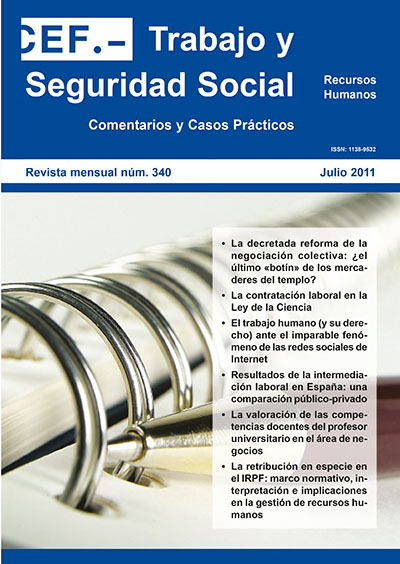Recruitment of researchers in the Sanish Law of Science, Technology and Innovation: end of the state of emergency in science?
DOI:
https://doi.org/10.51302/rtss.2011.5127Keywords:
researchers, doctorate, temporary recruitment, permanent recruitment, unstable employmentAbstract
The Science Law has introduced a general principle that research staff receiving research grants for the provision of services should be considered as being employed. This has put an end to the deep-rooted tradition of dealing with these cases as internships. The law thus considers that research carried out by research staff receiving research grants should be considered as employment, and that the organizations in which these staff work must give them an employment contract.
Based on these premises, the Science Law considers several legal instruments aimed at meeting the needs of research staff recruitment. These include specific types of contract for research (pre-doctoral contracts, contracts of access to the Spanish science, technology and innovation system, and distinguished researcher contracts) and the contracts laid down in the Workers’ Statute (WS), especially the contract for work and service provided for in article 15.1 a) WS, with regard to which the Law has introduced some specific regulations. The Law also deals with recruitment of researchers on open-ended contracts. This possibility is provided for but not dealt with in depth, so this system will continue to be used alongside the traditional means of consolidation of research staff: civil service posts for university lecturers and researchers.
Supporting Agencies
Este trabajo se enmarca en el proyecto de investigación SEJ 2007-67808-C02-01, concedido por el Ministerio de Ciencia e Innovación, que lleva el título de «Delimitación subjetiva y condiciones de empleo y trabajo del personal docente e investigador (PDI) de las Universidades Públicas». El autor es miembro del grupo de investigación consolidado reconocido por la Generalitat de Cataluña «Análisis Social y Organizativo» (2009 SGR 310)


















